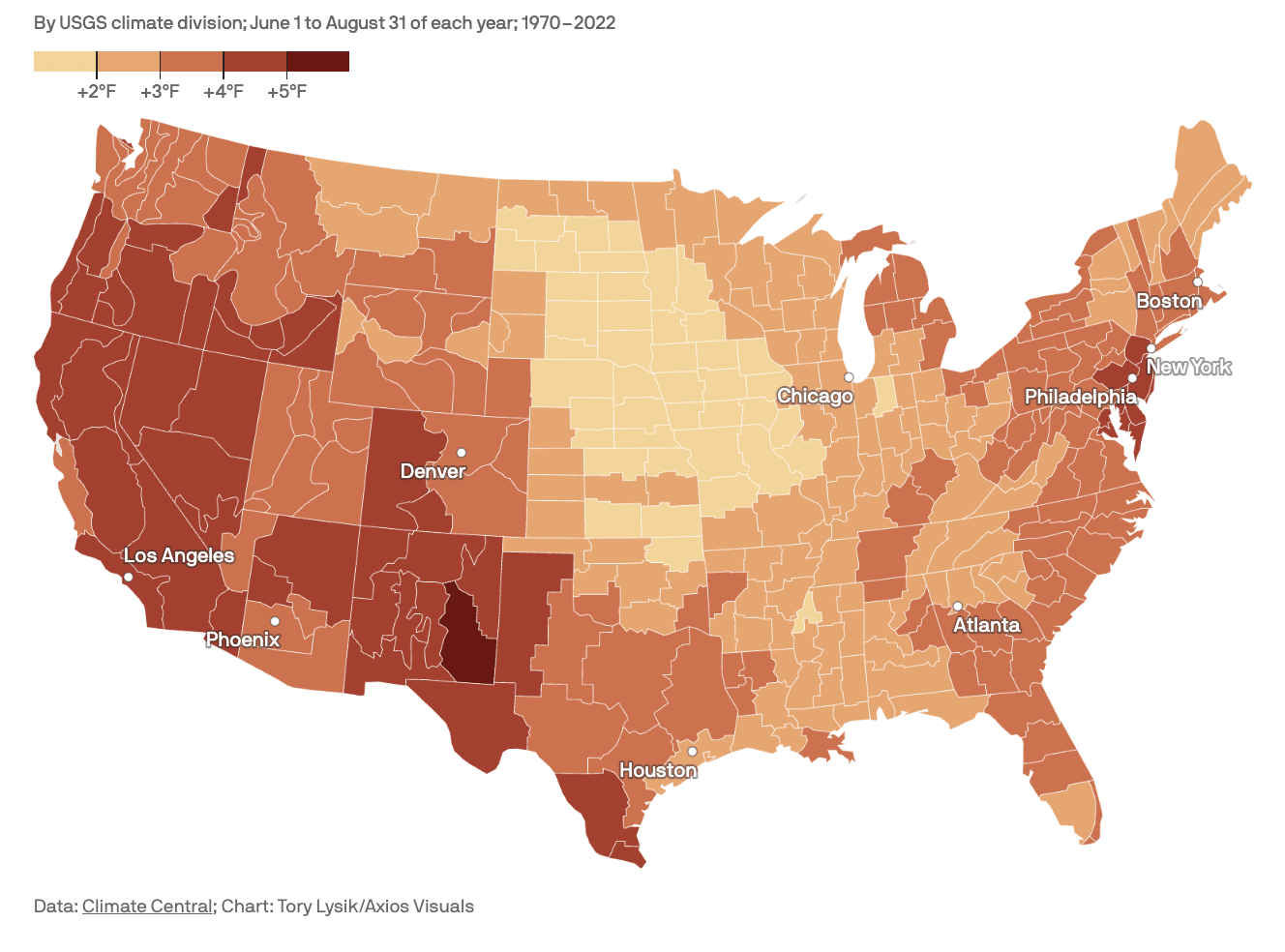Reno and Las Vegas Named Among Hottest Cities
Summers have gotten hotter in many cities across the U.S. over the past five decades, per a new analysis by climate research group Climate Central.
- Between 1970 and 2022, summer temperatures rose by 2.4°F on average across nearly 230 locations — 95% of the locations the group analyzed.
Why it matters: Extreme heat is a serious health risk, leading to both immediate acute effects (such as exhaustion and heat stroke) as well as longer-term complications due to reduced air quality.
- A particularly deadly “heat dome” phenomenon was linked to dozens of deaths across the Pacific Northwest back in 2021, lending fresh urgency to the problem of rising city temperatures.
- While the wildfire smoke plaguing the Northeast U.S. this week hasn’t been linked to higher temperatures, the resulting decline in air quality is yet another climate issue cities must grapple with moving forward.
Zoom in: Average temperature increases from 1970 to 2022 were highest in Reno, Nevada (+11.1°F); Boise, Idaho (+5.8°F); Las Vegas (+5.8°F); Salt Lake City (+5.5°F); and El Paso, Texas (+5.3°F).
Of note: Approximately half of the locations analyzed are now reporting at least two more weeks’ worth of summer days with above-normal temperatures compared to 1970.
The big picture: Cities nationwide are hiring “chief heat officers” to head up efforts to mitigate urban heat, as Jennifer A. Kingson has reported, including through the use of “smart surfaces” and increasing tree cover (and thus shade).
- “Urban heat islands” tend to be more common in low-income neighborhoods, making them a key socioeconomic issue for cities to tackle.
The bottom line: “As carbon pollution traps more heat in Earth’s atmosphere, the summer season is warming, summer temperatures are arriving earlier in the year, and risky heat extremes are becoming more frequent,” per Climate Central.
Note: This story has been corrected to reflect that the deadly Pacific Northwest heat wave struck in 2021, not 2011.

